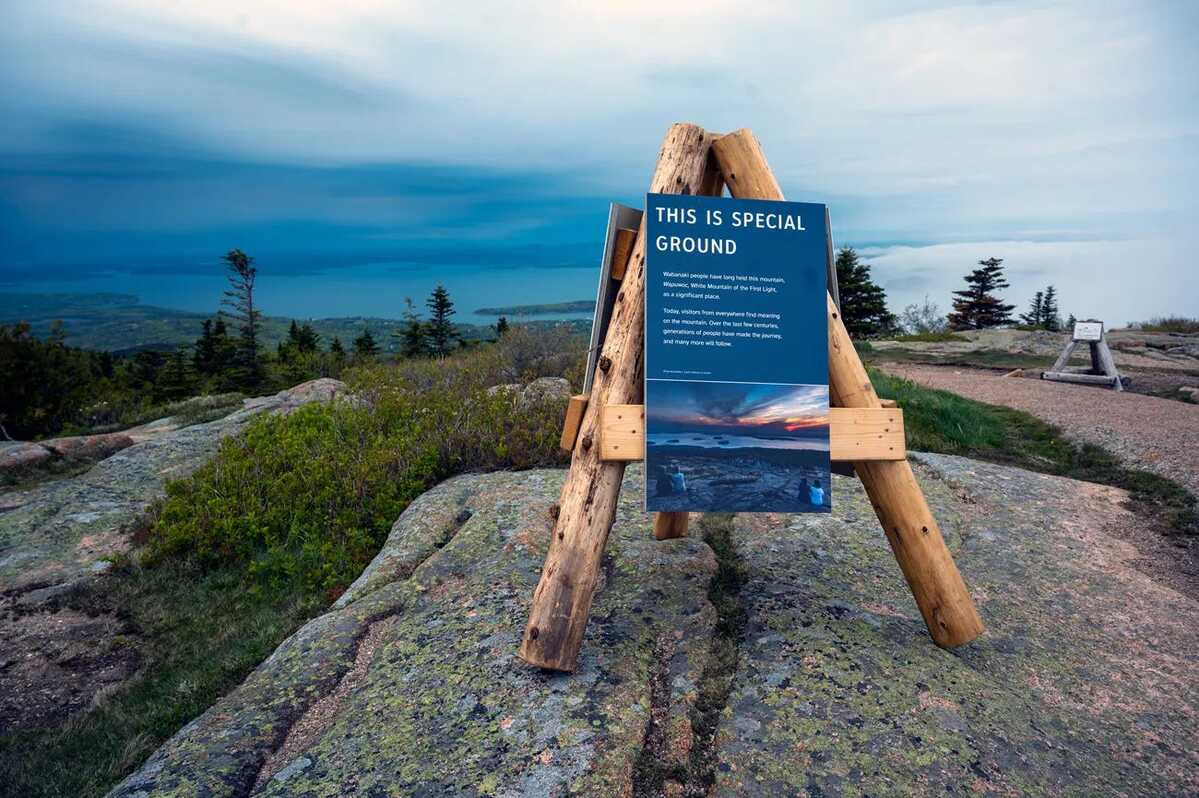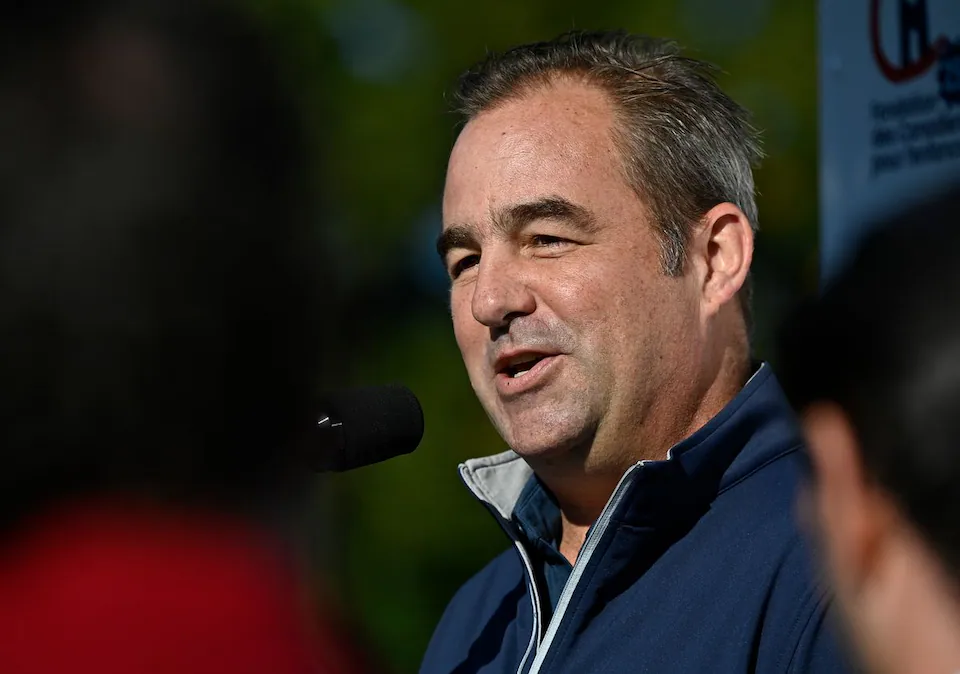
ACADIA NATIONAL PARK — The National Park Service has removed multiple Acadia National Park signs that refer to climate change. Those signs were at the summit of Cadillac Mountain, one of the park’s most popular spots, as well as Great Meadow.
The Trump administration has said that it hopes to take away information from national sites, such as parks, that it believes diminishes “the remarkable achievements of the United States.”
Pages on the park service website that refer to climate change were also removed early in 2025.
A spokesperson for the Department of Interior, Aubrie Spady, told the Bar Harbor Story on Tuesday, “The online content was taken down at the beginning of the year because this administration believes in only administering facts based on real science to the American public, not brainless fear-mongering rhetoric used to steal taxpayer dollars.”
Todd Martin, a senior program manager for the National Parks Conservation Association, pushed back on the changes, arguing that “national parks have never faced a more dire and existential threat than climate change,” given that it contributes to flooding, fires and drought, as well as more frequent extreme weather.
“Silencing science won’t stop climate change. It only leaves our parks and communities less informed and more vulnerable,” Martin said.
Martin told the Bar Harbor Story that six signs on Cadillac Mountain and four at Great Meadow had been removed. They described the impacts of climate change on the park and the connection of the Wabanaki nations to Cadillac Mountain, and encouraged park visitors to reduce their impact by taking the Island Explorer bus.
Martin went on, “We have decades of scientific research indicating how climate change is impacting Acadia — more intense rainfall and coastal storms, less snow, longer droughts, and rising sea levels. These are scientific facts, not political statements. Full stop.”
Martin urged Department of Interior Secretary Doug Burgum to rescind secretarial order 3431, which has dictated the changes.
According to the Washington Post, “Park Service officials have broadly interpreted the order to apply to information on racism, sexism, Indigenous persecution, gay rights, and climate change.”
In an Aug. 31 letter, the Coalition for Outdoor Renaming and Education also urged Burgum to reverse the order. A local nonprofit group, Friends of Acadia, has also joined those calls, according to President and CEO Eric Stiles.
In a Sept. 18 letter to Burgum, U.S. Rep. Chellie Pingree, D-Maine, expressed her “outrage over recent reports that the National Park Service is removing interpretive signs related to climate change and sea level rise.”
“Many of these signs provide vital educational information to the 330 million annual visitors at our NPS units,” Pingree said. “The attempt to whitewash history is something that should not be tolerated in any form — including at many NPS historical sites that call attention to and educate about the full scope of our nation’s story.”
A National Park Service spokesperson, Rachel Pawlitz, disagreed.
Pawlitz told the Post, “Interpretive materials that disproportionately emphasize negative aspects of U.S. history or historical figures, without acknowledging broader context or national progress, can unintentionally distort understanding rather than enrich it.”
According to NPR, the Trump administration gave parks a Sept. 17 deadline “to address any signs, statues or memorials it believes reflect negatively on the country.”



